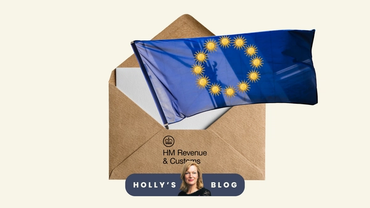FTSE going for glory as NatWest leaves home
By Holly Mackay, Founder & CEO
30 May, 2025

I feel like a parent at the finishing line this week, as I track the FTSE 100 to see if it can peak its all-time high. Step aside S&P 500 Limelight-Hogger as the FTSE is having a moment. Not sure we will get there today… maybe next week, if Trump doesn’t have anything up his sleeve?
If we wrote down the 100 firms in the FTSE 100, NatWest would be about the 18th largest. And this bank will hit the headlines over the coming days.
Why? The next few days herald the symbolic closing of a chapter as NatWest prepares for full privatisation. Any day now, the Government will sell its final (now small) stake in the bank it bailed out in 2008, when the credit crunch hit, as NatWest finally leaves home and does all of its own washing.
Although this closes off a chapter in financial history, the scars of the credit crunch remain deep. The Treasury spent almost £46 billion to bail out NatWest, which came within hours of running out of money. And estimates are that this intervention will cost the taxpayer over £10 billion. Ouch.
What went wrong? It’s a complicated story but put simply, when too many people borrow too much money and use these loans to buy dodgy stuff and interest rates go up, at some point this all starts to unravel when people can’t afford to pay back these loans and banks get the heebie-jeebies and start to ask for their money back.
These loans were risky and many shouldn’t have been made in the first place. There are lots of people who work in finance who try to perform alchemy and squash things into packages they don’t fit inside, giving them fancy names and preparing complex PowerPoint presentations to explain them. And they get carried away in their own mastery, until everyone realises that the Emperor is actually naked and that the Shiny Thing is just a Dodgy Thing.
The chapter may be closed, but is there room for a sequel? Although rules and governance have been dramatically tightened in response, there are serious concerns about debt today. Put simply, we're up to our eyeballs in debt, whether you are a Government, a company or an individual. Global debt is estimated to be around $323 trillion - such a huge number that it’s almost meaningless and unfathomable. Let’s just agree it’s a hell of a lot!
Accompanying all this debt, interest rates are relatively high, Trump is stirring the tariff pot, global tensions are high, economies are sluggish, and companies are borrowing lots. This is all bad. On the other hand, inflation is easing, banks have quite a lot of money sloshing around, and Governments and Central Banks (hopefully) carry the muscle memory of 2008. So, most people agree that another credit crunch is possible yet not probable. Phew.
People who have bought NatWest shares have done amazingly well over the last 2 years and have pretty much doubled their money - the shares are nearly at a 52-week high. The most compelling thing about these shares is arguably the dividend, which means that shareholders currently get paid out about £4.10 a year for every £100 worth of shares they own. Once privatised, the bank can go on a shopping spree and buy other businesses or invest in things, so it will be interesting to track and see what they do. There is a chance this dividend will go up, so worth monitoring if you need an income from your investments.
In associated news, we have a new feature piece on the financials sector this week (fun fact – ‘boring’ financial stocks have outperformed the technology sector over the last 12 months). And last but not least, an important update and some tips for older readers who are reconsidering their pensions, in light of the changes to Inheritance Tax coming down the line.
Have a great weekend, everyone. And go FTSE!
Holly
Post a comment:
This is an open discussion and does not represent the views of Boring Money. We want our communities to be welcoming and helpful. Spam, personal attacks and offensive language will not be tolerated. Posts may be deleted and repeat offenders blocked at our discretion.






